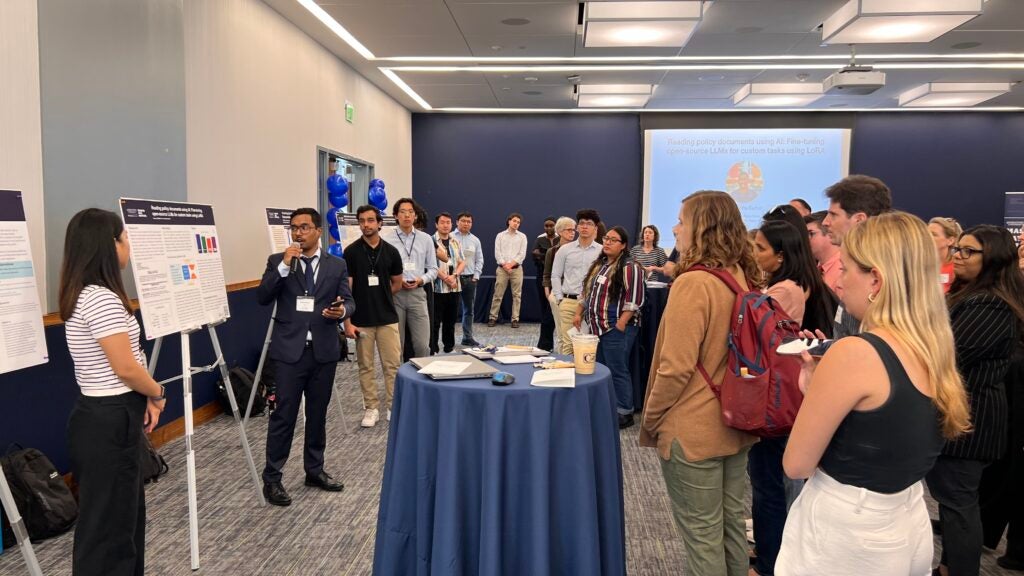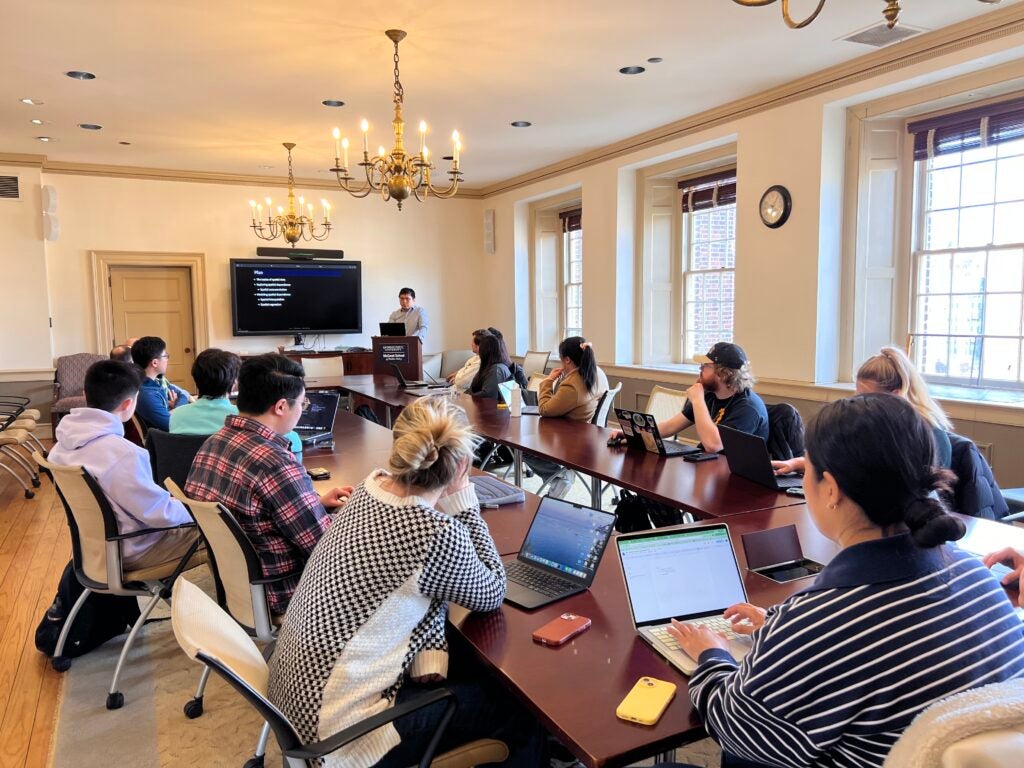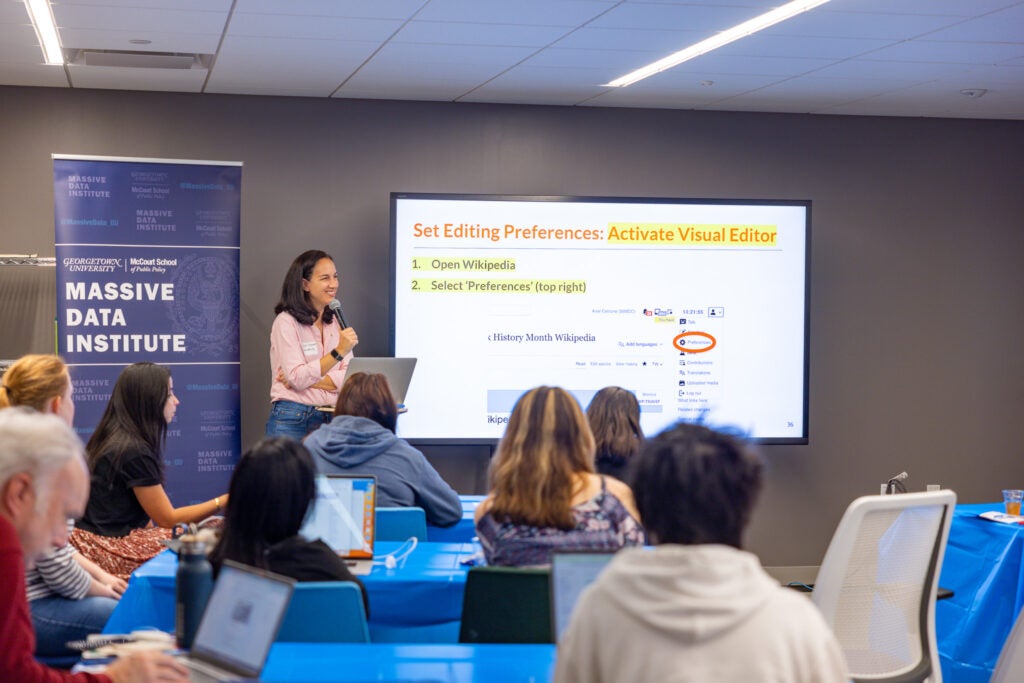2023 – 2024 Academic Year Recap
Written by Lisa Singh, MDI Director, Sonneborn Chair, and a Professor in the Department of Computer Science and McCourt School of Public Policy
I have spent a good part of my academic career building or partaking in different collaborative environments. I suspect my fascination comes from my long-term research interest in networks. This past academic year, I began thinking more deeply about how to facilitate the building and growth of a vibrant MDI community that has deep connections inside and outside Georgetown University. Ultimately, I believe that leading the co-creation of a thriving community requires working together with a combination of network builders, network contributors, and network connectors.
MDI has a maturing network. One that has been steadily growing over the past few years, but has not yet reached its tipping point. The point at which MDI’s network growth accelerates exponentially and the impact of all we do becomes even more far reaching. While it may take a few more years to reach our tipping point, we already have a vibrant, strong network. I believe that one important reason our network continues to strengthen and grow is MDI’s focus on engagement with impact. At MDI, we not only engage in traditional forms of partnerships and collaborations, we also spearhead new forms that are unique to MDI and that help further deepen our network’s connections.

Some of our engagement is well established, like our MDI Scholars program that had a Spring 2024 cohort of 30 undergraduate and Master’s students working on seventeen different research projects or our monthly MDI Faculty Tea Times, at which over 20 different faculty and postdocs from across the University shared new research directions, debated different approaches, and discussed potential future collaborations.

We have also developed a strong tradition of hosting the MDI Data Science Workshop series each semester to train students, staff, and faculty on the latest data science methods and further expand our community. The themes of this year’s workshops were text as data for the three workshops in the fall and non-traditional data analysis in the four workshops in the spring.
The final traditional engagement I want to mention focuses on helping faculty with technical research infrastructure (compute power), data access (e.g. Research Data Center) and software development support for their research projects. This past year, our technical team helped build software/databases and conduct data science analysis for projects related to education, Alzheimers, climate change, the DC Safe Babies Safe Moms program, privacy technologies, forced migration, and environmental justice, to name a few.
So what are some of MDI’s new forms of engagement? I will highlight three.
Building International Partnerships focused on Policy Impact: We partnered with la Universidad de la Sabana (Unisabana) in Colombia to organize our first international Data4Policy Challenge. During the Challenge, students worked in teams (including cross university teams) to identify data-driven strategies for answering the question – How do you improve the trust of Colombians in their institutions? All the solutions were very thoughtful and a strong reminder that countries around the world are facing similar challenges, and creating environments for multi-perspective solutions is necessary for tackling the policy questions of the day.

Improving Diversity in Online Information Resources: This year, MDI focused on addressing the gender gap on Wikipedia by launching the Georgetown University Wikipedia Edit-a-thon for Women’s History Month. On Wikipedia, only 15% of contributors are women and women only appear in just over 20% of all human images on Wikimedia Commons. This event was an opportunity to roll up our sleeves and add content related to women onto Wikipedia. For me, it was the first Wikipedia page I had worked on. In total, the students, staff, and faculty who participated added approximately 3,000 words and 30 new references to new and existing articles (statistics from the day). To increase participation at the Edit-a-thon, MDI partnered with Wikimedia District of Columbia, and collaborated with 10 other centers, departments and groups across Georgetown.

Examining Research and Policy from Multiple Lenses: In my January letter, I identified AI as a focus issue in the Spring semester. While we have engaged with this topic in different ways, one highlight was our “AI & Me” panel series that explored the impact of AI on our daily lives. This panel series was in partnership with the McCourt of Public Policy’s Tech & Public Policy Program, bringing together leading experts, researchers, and practitioners to discuss the impact of generative AI on privacy, equity and creativity. I loved this event series because it gave our Georgetown community an opportunity to connect AI to their worlds and think more deeply about the risks, challenges, and benefits of new (and old) AI technologies within their daily lives.
Through all these different types of engagements, we have connected to hundreds of people from students, faculty, staff, and alumni to government officials, partners, industry leaders, and members of the public. For those of you who have been MDI network builders, contributors, and/or connectors, I thank you. For those of you who have not engaged with the MDI community yet, we hope to collaborate with you soon. For everyone, I look forward to working together to continue to advance research and policy around the most salient issues of the day, and to hopefully, reach our tipping point soon.
To building strong, impactful networks!
Lisa
- Tagged
- MDI Director
- Singh
